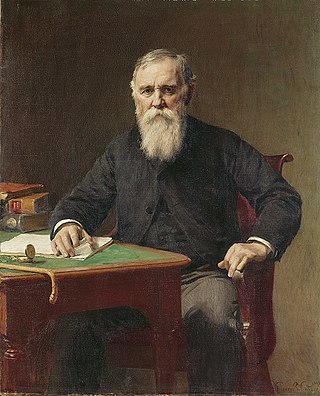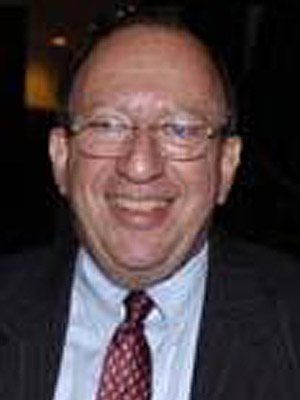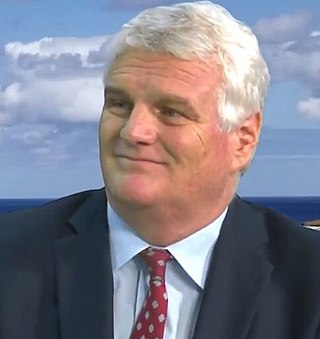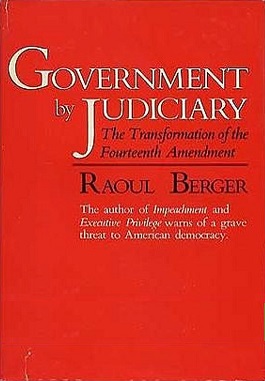Related Research Articles

Harvard Law School (HLS) is the law school of Harvard University, a private research university in Cambridge, Massachusetts. Founded in 1817, Harvard Law School is the oldest law school in continuous operation in the United States.

Samuel Williston was an American lawyer and law professor who authored an influential treatise on contracts.

The Harvard Law Review is a law review published by an independent student group at Harvard Law School. According to the Journal Citation Reports, the Harvard Law Review's 2015 impact factor of 4.979 placed the journal first out of 143 journals in the category "Law". It also ranks first in other ranking systems of law reviews. It is published monthly from November through June, with the November issue dedicated to covering the previous year's term of the Supreme Court of the United States.

The William S. Richardson School of Law is the professional graduate law school of the University of Hawaiʻi at Mānoa. Located in Honolulu, Hawaii, the school is named after its patriarch, former Hawaii State Supreme Court Chief Justice William S. Richardson, a zealous advocate of Hawaiian culture, and is Hawaii's only law school.

Christopher Columbus Langdell was an American jurist and legal academic who was Dean of Harvard Law School from 1870 to 1895. As a professor and administrator, he pioneered the casebook method of instruction, which has since been widely adopted in American law schools and adapted for other professional disciplines, such as business, public policy, and education. He has been referred to as "arguably the most influential teacher in the history of professional education in the United States".
Guido Calabresi is an Italian-born American jurist who serves as a senior circuit judge of the United States Court of Appeals for the Second Circuit. He is a former Dean of Yale Law School, where he has been a professor since 1959. Calabresi is considered, along with Ronald Coase and Richard Posner, a founder of the field of law and economics.

John Hart Ely was an American legal scholar. He was a professor of law at Yale Law School from 1968 to 1973, Harvard Law School from 1973 to 1982, Stanford Law School from 1982 to 1996, and at the University of Miami Law School from 1996 until his death. From 1982 until 1987, he was the 9th dean of Stanford Law School.
The Columbia Law Review is a law review edited and published by students at Columbia Law School. The journal publishes scholarly articles, essays, and student notes.
William Lloyd Prosser was the Dean of the School of Law at UC Berkeley from 1948 to 1961. Prosser authored several editions of Prosser on Torts, universally recognized as the leading work on the subject of tort law for a generation. It is still widely used today, now known as Prosser and Keeton on Torts, 5th edition. Furthermore, in the 1950s, Dean Prosser became Reporter for the Second Restatement of Torts.

Leonard P. Strickman is an American law professor who served as Dean of three law schools, guiding two of them to various stages of ABA accreditation. Most recently, he was the founding Dean of the Florida International University College of Law, which went from establishment to full accreditation during his tenure.
The Yale Law Journal (YLJ) is a student-run law review affiliated with the Yale Law School. Published continuously since 1891, it is the most widely known of the eight law reviews published by students at Yale Law School. The journal is one of the most cited legal publications in the United States and usually generates the highest number of citations per published article.

Elena Kagan is an American lawyer who serves as an associate justice of the Supreme Court of the United States. She was appointed in 2010 by President Barack Obama and is the fourth woman to serve on the Court.

John Henry Wigmore (1863–1943) was an American lawyer and legal scholar known for his expertise in the law of evidence and for his influential scholarship. Wigmore taught law at Keio University in Tokyo (1889–1892) before becoming the first full-time dean of Northwestern Law School (1901–1929). His scholarship is best remembered for his Treatise on the Anglo-American System of Evidence in Trials at Common Law (1904), often simply called Wigmore on Evidence, and a graphical analysis method known as a Wigmore chart. He served as the second president of the American Association of University Professors.

John Francis Manning is an American legal scholar who serves as the provost of Harvard University, and was the 13th Dean of Harvard Law School. He was previously the Bruce Bromley Professor of Law at Harvard Law School (HLS), where he is a scholar of administrative and constitutional law.
Harry Hillel Wellington was an American legal scholar who served as the Dean of Yale Law School from 1975 to 1985 and the dean of New York Law School from 1992 to 2000.

Mark E. Recktenwald is the chief justice of the Supreme Court of Hawaii.

Heather Kristin Gerken is an American legal scholar who serves as the Sol & Lillian Goldman Professor of Law at Yale Law School, where she teaches election law and runs the San Francisco Affirmative Litigation Project. Since 2017, she has also served as the Dean of Yale Law School, being its first female dean.

Government by Judiciary is a 1977 book by constitutional scholar and law professor Raoul Berger which argues that the U.S. Supreme Court has interpreted the Fourteenth Amendment of the U.S. Constitution contrary to the original intent of the framers of this Amendment and that the U.S. Supreme Court has thus usurped the authority of the American people to govern themselves and decide their own destiny. Berger argues that the U.S. Supreme Court is not actually empowered to rewrite the U.S. Constitution – including under the guise of interpretation – and that thus the U.S. Supreme Court has consistently overstepped its designated authority when it used its powers of interpretation to de facto rewrite the U.S. Constitution in order to reshape it more to its own liking.

A law school dean is usually the highest-ranking administrator in a law school.
Henry Paul Monaghan is an American legal scholar. He was the Harlan Fiske Stone Professor of Constitutional Law at Columbia Law School from 1988 to 2019.
References
- 1 2 3 4 5 "Biography of Aviam Soifer from the William S. Richardson School of Law" . Retrieved December 20, 2010.
- 1 2 3 4 5 Apgar, Sally (March 16, 2003). "Pay doubles for new UH dean: Aviam Soifer, chosen as head of the UH law school, will earn about $250,000". Honolulu Star-Bulletin . ProQuest document ID 412336536.
- ↑ "Dean Aviam Soifer". American Law Institute . Retrieved September 14, 2020.
- 1 2 3 Zachary R. Dowdy, "Professor named dean of BC law", The Boston Globe (May 2, 1993), p. 36.
- ↑ "Soifer Honor", Des Moines Tribune (September 22, 1966), p. 21.
- ↑ "Yale Testing Coeducation–For a Week", Chicago Tribune (November 5, 1968), Sec. 3, p. 10.
- ↑ Yale Needs Women, Ann Gardiner Perkins, Sourcebooks (September 10, 2019)
- ↑ "Professors Gang Up On Meskill", Naugatuck Daily News (September 12, 1974), p. 1, 6.
- ↑ "Researcher finds articles on nuclear bomb secrets", Calgary Herald , (May 23, 1979), p. D-16.
- ↑ "Scientist discovers more H-bomb how-to manuals", The Miami News, (May 23, 1979), p. 2-A.
- 1 2 Glenn Collins, "Understanding paternalism", Fort Worth Star-Telegram (October 22, 1981), p. 3C, via the New York Times News Service.
- ↑ Nick King, "Supreme Court has an image problem", The Boston Globe (September 29. 2982). p. 3.
- ↑ "'Unjust' view of law gets profs fired", The Lowell Sun (September 11, 1987), p. 16.
- ↑ Schneider, Alison; Heller, Scott; Wilson, Robin (June 4, 1999). "Ideology May Have Affected Searches for Deans at Two Catholic Institutions" . The Chronicle of Higher Education .
- ↑ Richard Chacón, "Law school dean at BC to resign; Departure of Soifer is unexpected", The Boston Globe (November 26, 1997), p. B7.
- ↑ Adam Pertman, "Law deans' tenure grows precarious", The Boston Globe (August 14, 1998), p. 1.
- ↑ Elizabeth S. Anker, Bernadette Meyler, New Directions in Law and Literature (2017), p. 40.
- ↑ Choice: Publication of the Association of College and Research Libraries (1995), p. 1427.
- ↑ Recktenwald, Mark E. (June 7, 2019). "Proclamation" (PDF). Supreme Court of Hawaii.
- ↑ Reviews of Law and the Company We Keep:
- Yeazell, Stephen C. (1997). "Review of Law and the Company We Keep". Law and History Review . 15 (2): 432–433. doi:10.2307/827698. ISSN 0738-2480. JSTOR 827698. S2CID 147154741.
- Constable, Marianne (May 1997). "Review of Law and the Company We Keep". Contemporary Sociology . 26 (3): 362. doi:10.2307/2654048. JSTOR 2654048.
- "Private Sovereignties: Review of Law and the Company We Keep". Harvard Law Review . 109 (3): 669–674. 1996. doi:10.2307/1342068. JSTOR 1342068.
- ↑ "Soifer-Booth", Des Moines Tribune (August 28, 1969), p. 23.